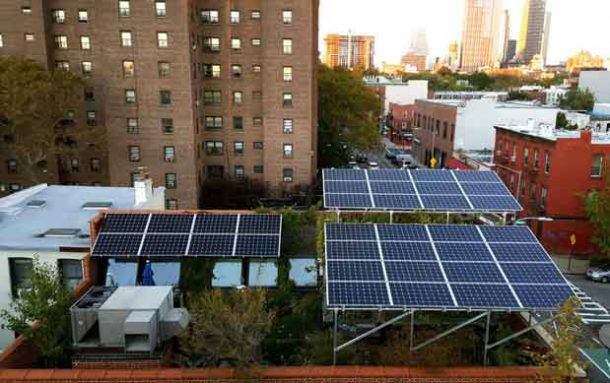With the increasing popularity of solar energy, many homeowners are considering investing in solar panels to reduce their energy bills and lower their carbon footprint.
However, deciding to go solar involves a complex cost-benefit analysis that requires careful consideration of various factors. In this article, we’ll delve into the economics of solar energy and explore how homeowners can assess the financial implications of installing solar panels with the assistance of solar installers.
Initial Investment vs. Long-Term Savings
One of the primary considerations for homeowners contemplating solar installation is the upfront cost of purchasing and installing solar panels. While the initial investment can be significant, viewing it in the context of long-term savings on electricity bills is essential. Solar panels have a lifespan of 25 years or more, during which they generate free electricity from sunlight.
By offsetting or eliminating electricity expenses, solar panels can provide substantial savings over their lifetime, ultimately outweighing the initial investment. Solar installers can help homeowners calculate the payback period for their solar investment, considering factors such as local electricity rates, available incentives, and the size and efficiency of the solar system.
Financial Incentives and Rebates
In addition to long-term savings on electricity bills, homeowners can take advantage of various financial incentives and rebates to offset the upfront solar installation costs. Many governments offer tax credits, grants, and rebates to incentivize solar adoption and promote renewable energy development.
These incentives can significantly reduce the cost of installing solar panels, making solar energy more accessible and affordable for homeowners. Solar installers are well-versed in navigating incentive programs and can help homeowners identify and leverage available financial incentives to maximize their savings. By leveraging financial incentives, homeowners can accelerate the return on investment for their solar energy system and enjoy greater financial benefits over time.
Maximizing Solar Efficiency: Tips for Optimizing Your Solar Energy System
While installing solar panels is a significant step towards reducing your carbon footprint and energy bills, optimizing the efficiency of your solar energy system is essential to maximize its benefits. One way to enhance solar efficiency is by ensuring proper placement and orientation of solar panels to maximize exposure to sunlight throughout the day.
Solar installers can assess your property’s solar potential and recommend the optimal placement and angle for solar panels to capture the maximum amount of sunlight. Additionally, regular maintenance and cleaning of solar panels are crucial for preserving their efficiency. Dust, dirt, and debris can accumulate on solar panels over time, reducing their ability to absorb sunlight effectively. By scheduling routine maintenance and cleaning, homeowners can ensure that their solar energy system operates at peak performance and maximizes energy production.
Another strategy for maximizing solar efficiency is investing in energy storage solutions such as battery storage systems. Energy storage allows homeowners to store excess solar energy generated during the day for use during periods of low sunlight or high energy demand. Battery storage systems provide greater energy independence and resilience, allowing homeowners to reduce reliance on the grid and take full advantage of their solar energy system. Solar installers can recommend and install battery storage solutions tailored to your energy needs and budget, enabling you to optimize the efficiency and reliability of your solar energy system.
Furthermore, integrating smart energy management technologies can help homeowners monitor and control their energy consumption more effectively, further optimizing the efficiency of their solar energy system.
Smart energy management systems allow homeowners to track energy usage in real-time, identify energy-saving opportunities, and automate energy-intensive processes to reduce wastage. By leveraging smart energy management technologies, homeowners can fine-tune their energy consumption patterns, maximize solar energy utilization, and further reduce their reliance on conventional energy sources.
Expanding Solar Applications: Exploring Innovative Uses of Solar Energy
While solar panels are commonly used to generate electricity for residential and commercial properties, innovative technologies are expanding solar energy applications beyond traditional power generation.
One emerging trend is integrating solar photovoltaic (PV) technology into building materials such as roofing shingles, windows, and facades. Building-integrated photovoltaics (BIPV) seamlessly blend solar panels into the architecture of buildings, offering both aesthetic appeal and energy efficiency. By incorporating solar PV technology into building materials, homeowners can harness solar energy while maintaining the visual aesthetics of their property.
Another innovative application of solar energy is solar water heating systems, which use solar panels to heat water for domestic use or space heating. Solar water heating systems can significantly reduce energy consumption and utility bills, particularly in regions with abundant sunlight. By harnessing solar energy to heat water, homeowners can enjoy hot water on-demand while reducing their reliance on fossil fuels and lowering their carbon emissions. Solar installers can assess your home’s suitability for solar water heating and recommend the appropriate system size and configuration to meet your hot water needs efficiently.
Additionally, solar energy can be used for agricultural purposes, such as powering irrigation systems, livestock water pumps, and remote farm operations.
Solar-powered agricultural equipment offers farmers a cost-effective and sustainable alternative to traditional diesel-powered machinery, reducing operating costs and environmental impact. Solar installers can design and install solar energy systems tailored to the specific needs of agricultural operations, enabling farmers to harness the sun’s power to enhance productivity and profitability. By embracing innovative uses of solar energy, homeowners and businesses can unlock new sustainability and resource efficiency opportunities.
Increased Property Value and Return on Investment
Beyond immediate cost savings and financial incentives, solar energy systems can enhance the value of a home and provide a substantial return on investment.
Studies have shown that homes with solar panels typically command higher resale prices and sell faster than comparable homes without solar installations. For more info on how to access those quick services, go over here – https://www.jpost.com/hype/solar-installers-near-me-best-companies-in-2024-783511?draft=1.
Homebuyers are increasingly drawn to properties with solar panels due to their energy efficiency, sustainability, and potential for long-term savings on utility bills. Solar installers can advise homeowners on the best placement and configuration of solar panels to maximize their aesthetic appeal and market value. By investing in solar energy, homeowners not only enjoy immediate cost savings but also benefit from increased property value and a higher return on investment when it comes time to sell their home.







